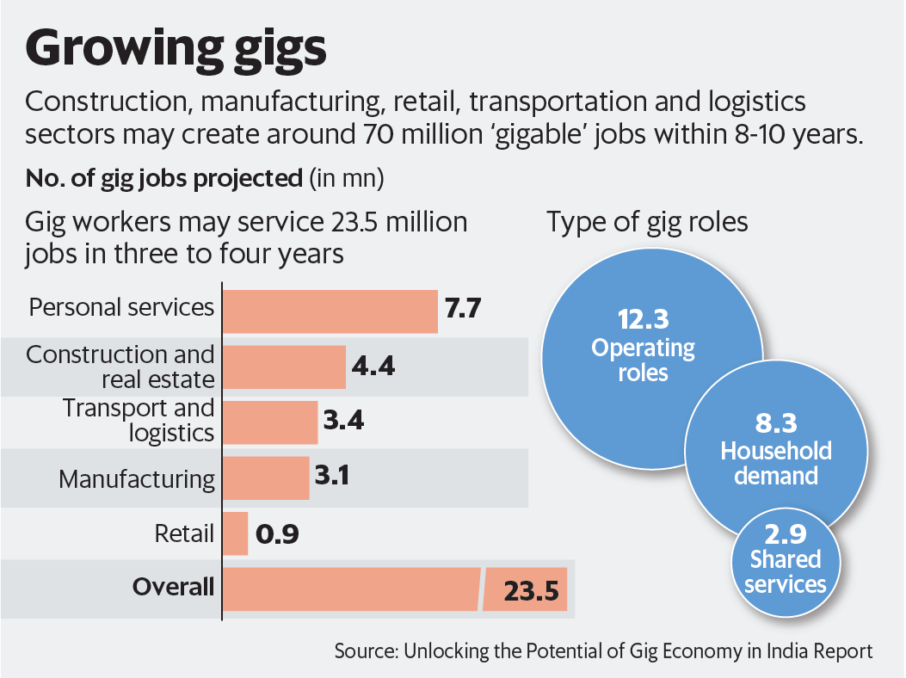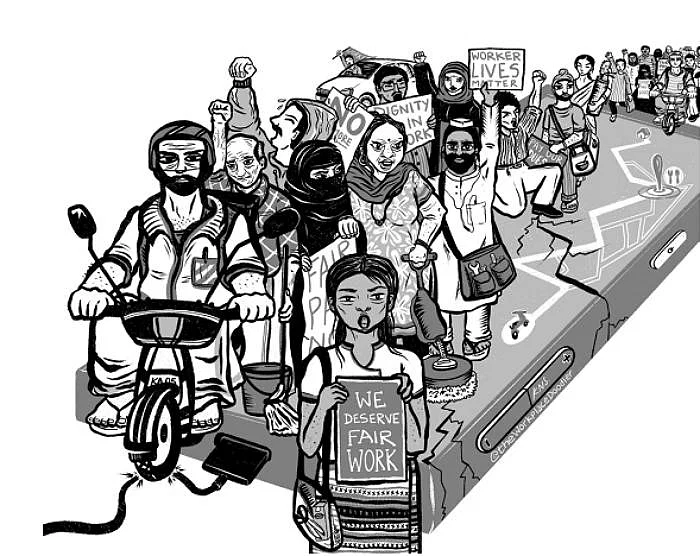The Rajasthan Platform based Gig Workers(Registration and Welfare) Act, 2024 is a first of its kind legislation that aims to create a social security fund and welfare board for platform workers in the state.

Who are Gig Workers?
Broadly, the gig workers can be defined as people working in the gig economy which is a freelance, contractual, temporary and short term based economy. These workers are of two types- Platform and Non- Platform Workers. The platform workers use digital platforms for their work such as Ola, Uber, Swiggy, Zomato whereas non platform workers are casual wage laborers who work in the informal sector in traditional jobs of construction, as domestic workers, street vendors, forming the part of the informal sector.

As per NITI Aayog, the current gig workforce of the country is 7.7 million and is expected to grow by 200% by 2029-30, leading to a workforce of 23.5 million people. While women participation has increased from 18% to 36%, youth participation has increased eight times in the year 2019-2020.
Problems faced by Gig Workers
The core issue surrounding those who work for the gig economy is the ambiguity that revolves around their categorisation. While they may work with formal organisations, their placement as “partners” or “freelance labour” puts them within the ambit of informal organisation. This deprives them of recognition, protection and benefits. It gives organisations who employ them scope for exploitation and opaqueness in their functions, leaving the workers overburdened, under paid and alienated.
As a result, they lack social security, opportunities for future, scope for mobility, income instability and legal recognition.
Thus, one may argue that Karl Marx’s 19th century proletariats have become the gig workers of the 21st century.
Rajasthan Gig Workers Legislation
These issues faced by the gig workers was brought to the forefront in the state of Rajasthan by various civil society pressure groups like MKSS, worker unions like Federation of App-based Transport Workers and political will of the Rajasthan government. As a result, the Rajasthan Platform based Gig Workers(Registration and Welfare) Act, 2024 Act came into being.
This Act calls for registration of all gig workers by assigning them unique ids, imposes 2% cess on every platform based transaction which will go into the social security fund for workers, gives social security benefits such as accident and health insurance, maternity, gratuity, pension, creates a grievance redressal mechanism for workers, imposes heavy penalties on non complying aggregators and employers among many others.
It also proposes creation of welfare board comprising of state officials, representatives of workers, aggregators and civil society, with at least one-third of the nominated members as women.
The Significance

According to a survey conducted by Boston Consultancy Group, the gig economy is expected to create 90 millions job in the non-farm sector and add up to 1.25% to India’s GDP. Thus, it would help bridge significant gaps in income and employment. The success of India’s gig economy is therefore an important component towards its goal of becoming a 5 trillion dollar economy.
While the success of the legislation’s implementation in the state is yet to be seen, the passing of the Act itself is a ground breaking moment as it lays down the path for recognition of such platform workers in other states and acts as a model act for the Centre. The very existence of this Act now gives statutory recognition to these platform gig workers by giving them rights to hold their employers accountable.
A promising future for the country lies in development of the country’s diverse population and its demographic dividend with creation of future opportunities that will facilitate mobility. Here, Acts like the Rajasthan’s Gig Workers Act then set precedent for more such progressive legislations in the future, recognizing and respecting the role of the working class in today’s society.













